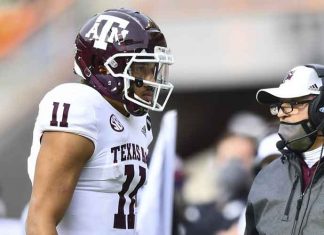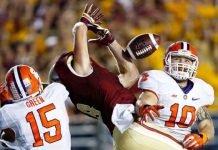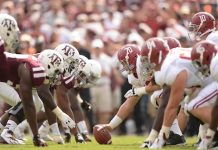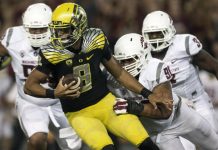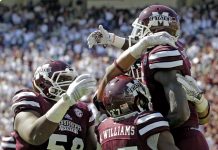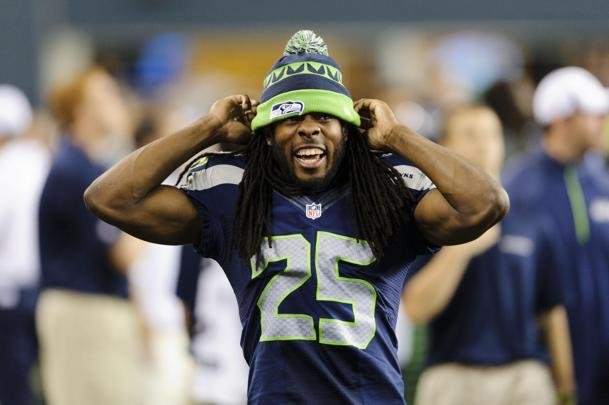(Stats Perform) – Former North Dakota State linebacker Jabril Cox was often described this year as the top player on the grad transfer market before he announced earlier this month his intention to move on to LSU.
The two-time FCS All-American effectively goes from the starting lineup of one national champion to another.
Few players of Cox’s stature have made the FCS-to-FBS graduate transfer since the NCAA first allowed in 2011 for student-athletes to complete their eligibility immediately elsewhere if they have earned their undergraduate degree and their postgraduate program of interest is not offered at their existing school but is at the new school. To make the transfer process easier for players – undergraduates as well – the NCAA in 2018 established a portal for them to announce their intention.
The exodus of FCS players to FBS programs through grad transfer has grown to a concerning level. This offseason, a HERO Sports tracker reflects dozens of FCS players have transferred or have their names in the transfer portal, free to discuss a potential move with coaches at other college programs. The grad transfers range from accomplished quarterbacks such as Luke Anthony (Abilene Christian to Louisiana Tech) and Maine’s Chris Ferguson (Maine to Liberty) to linemen such as center Blake Jeresaty (Wofford to Illinois) and defensive end Chris Agyemang (Sacred Heart to Ball State) to kickers such as Grayson Atkins (Furman to North Carolina) and Noel Ruiz (North Carolina A&T to Georgia State).
Grad transfers in Division I (either FBS to FBS and FCS to FBS) nearly tripled from 2013 to ’18 – 58 to 166 with an increase each year. Their immediate eligibility is key – an undergrad who makes such a transfer has to sit out one season under NCAA rules.
Proponents of the grad transfer rule can point to how a student-athlete has held up the academic end of his undergraduate scholarship by graduating and earned the right to complete his eligibility elsewhere. Opponents say the rule too often isn’t being used for academics and more by players who are motivated by playing time or with positioning themselves for a pro career. Cox, for example, is a 2021 NFL prospect.
“It’s now turned a little bit opposite on the FCS because it gives the (FBS schools) opportunities to scout and identify prospects that they would take into their program,” said Rhode Island coach Jim Fleming, who during his six-year tenure has lost four offensive linemen to grad transfers.
“There’s a lot of kids that have made decisions based upon the grass is greener on the other side of the fence, and you’ve got a lot of kids who were in good shape at their original institution that have no place to go and play now (professionally), so they’ve sacrificed not only football, but education, and I think that’s a problem.”
The grad transfer rule has been noticeable on the FBS level since quarterback Russell Wilson’s move from North Carolina State to Wisconsin in 2011, but the impact in the FCS didn’t reach prominence until Eastern Washington quarterback Vernon Adams’ grad transfer to Oregon five years ago.
At the time, former Montana State coach Rob Ash, who coached against Adams in the Big Sky Conference, questioned whether the rule would allow FBS programs to treat the FCS as a “farm system or Triple-A ballclub.”
Some now believe it’s become college football free agency.
25% Bonus via Western Union



